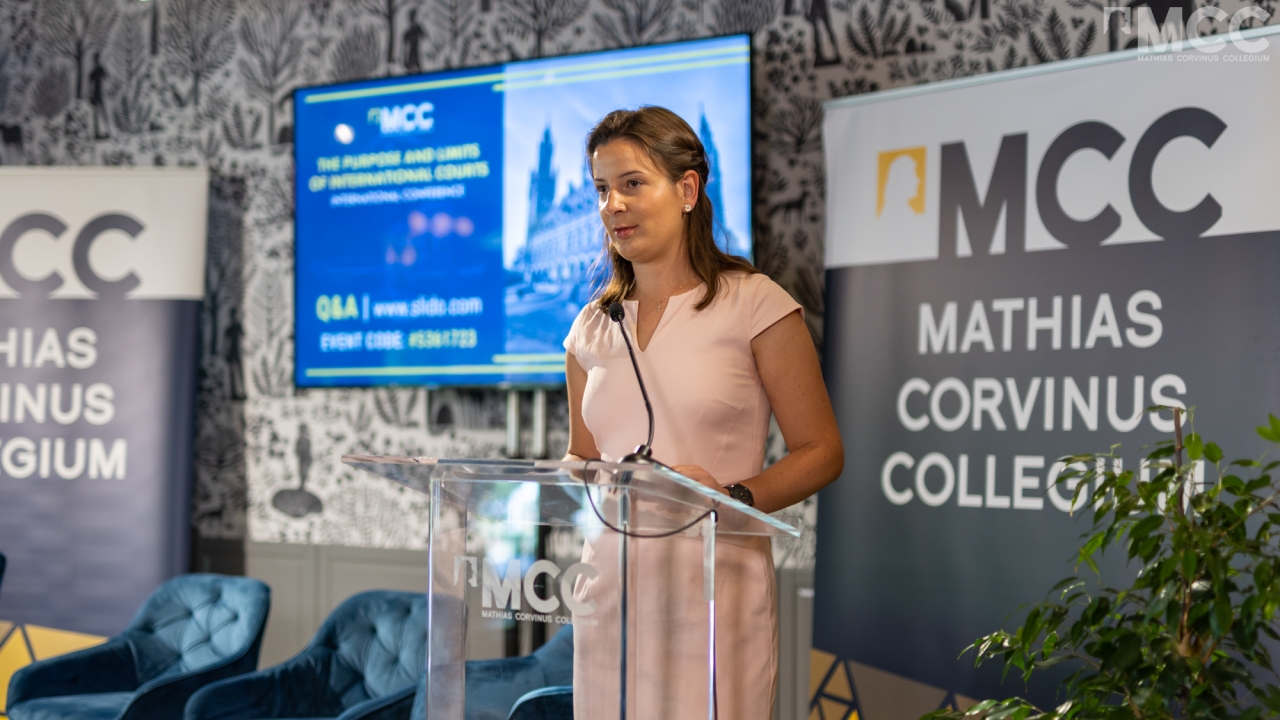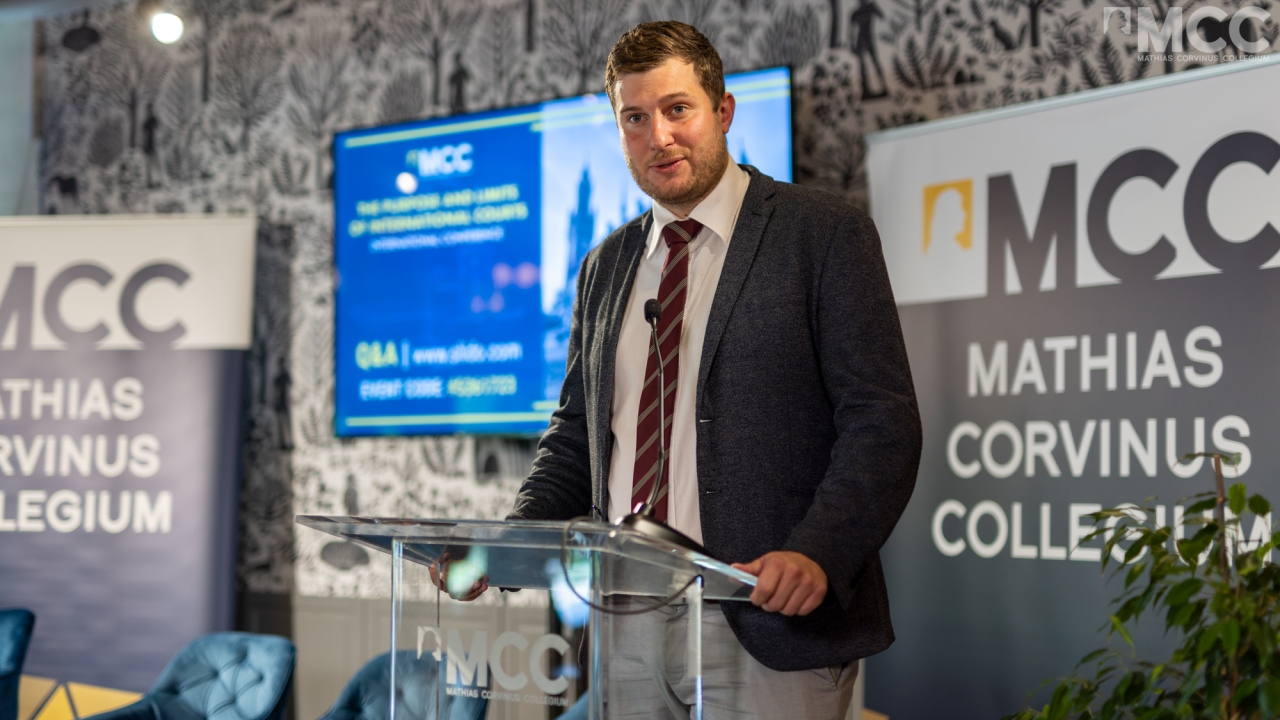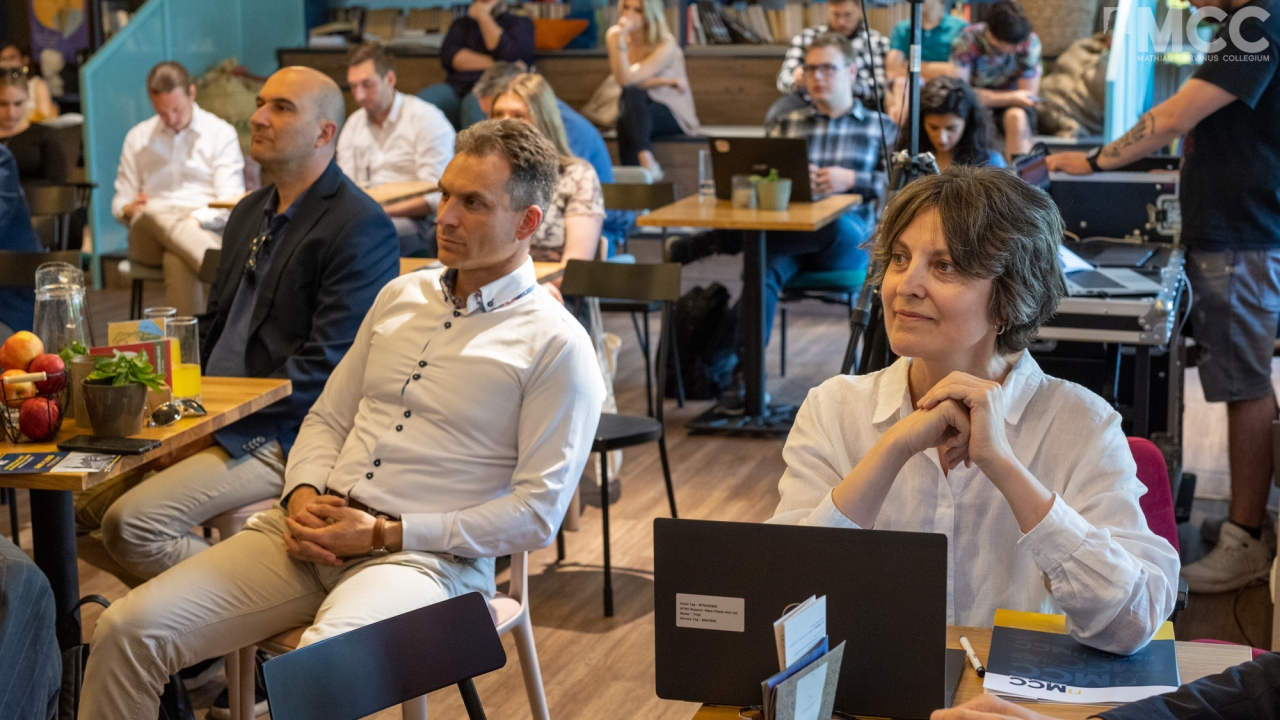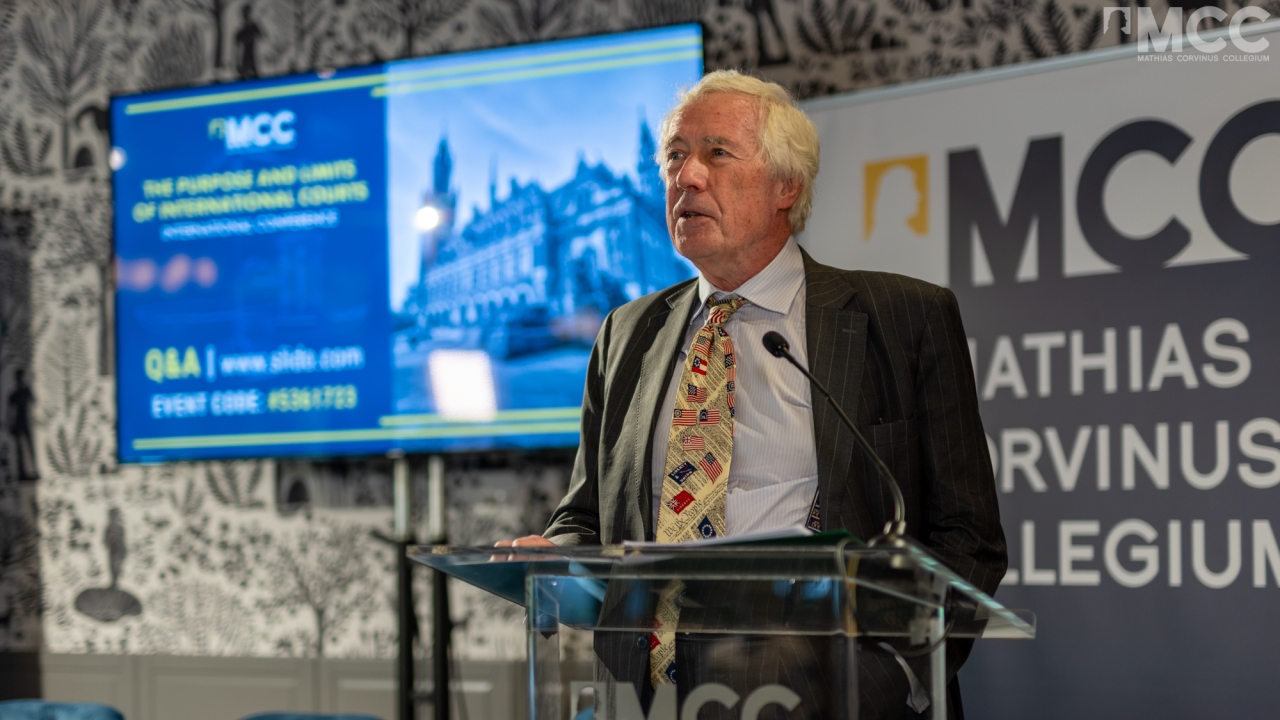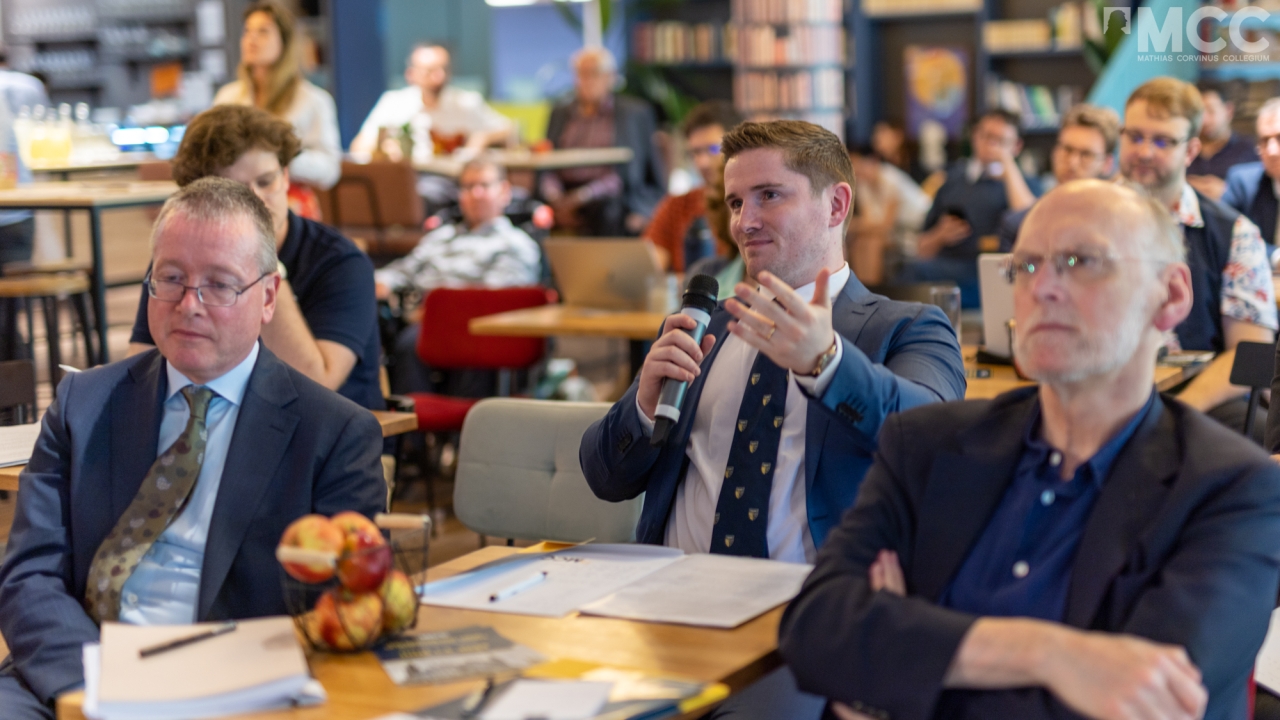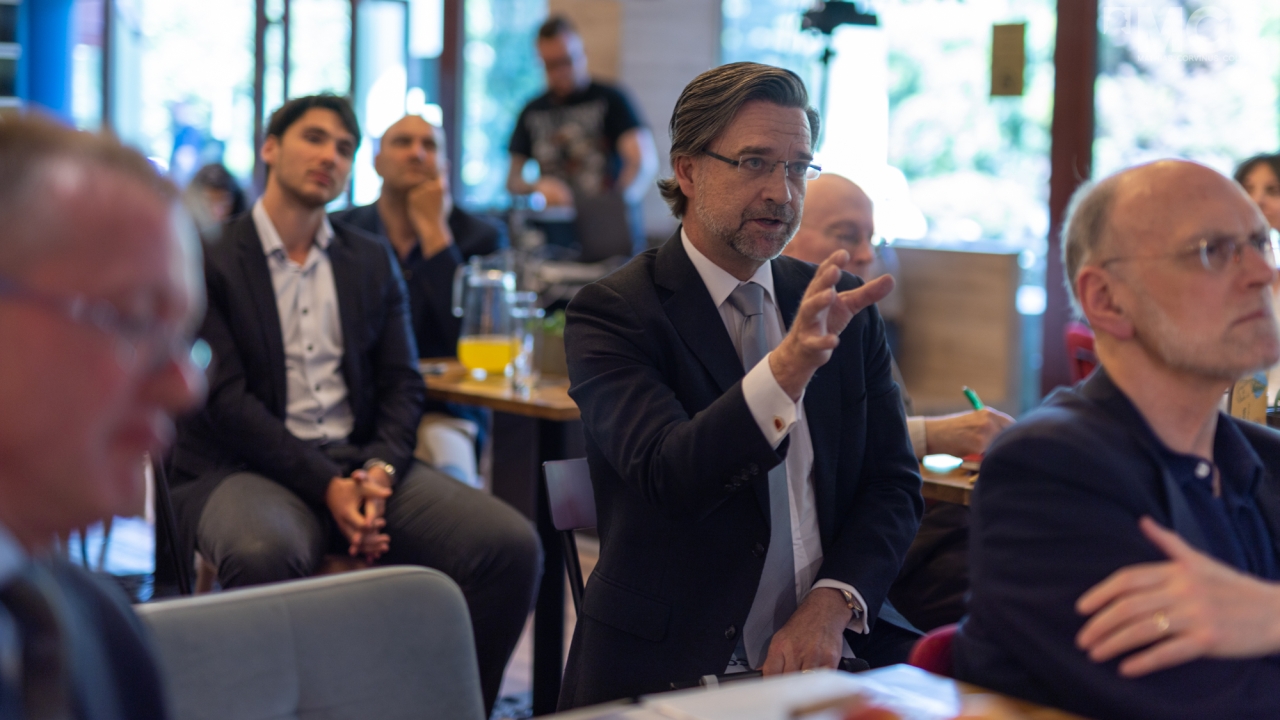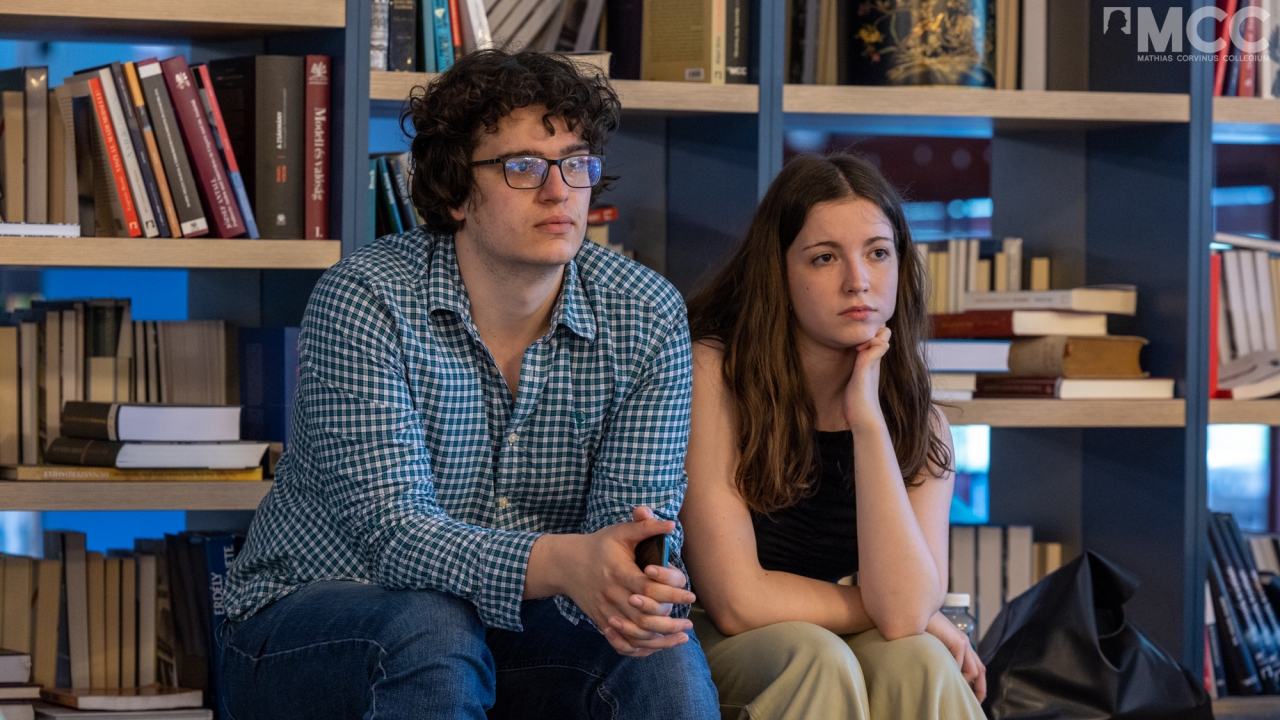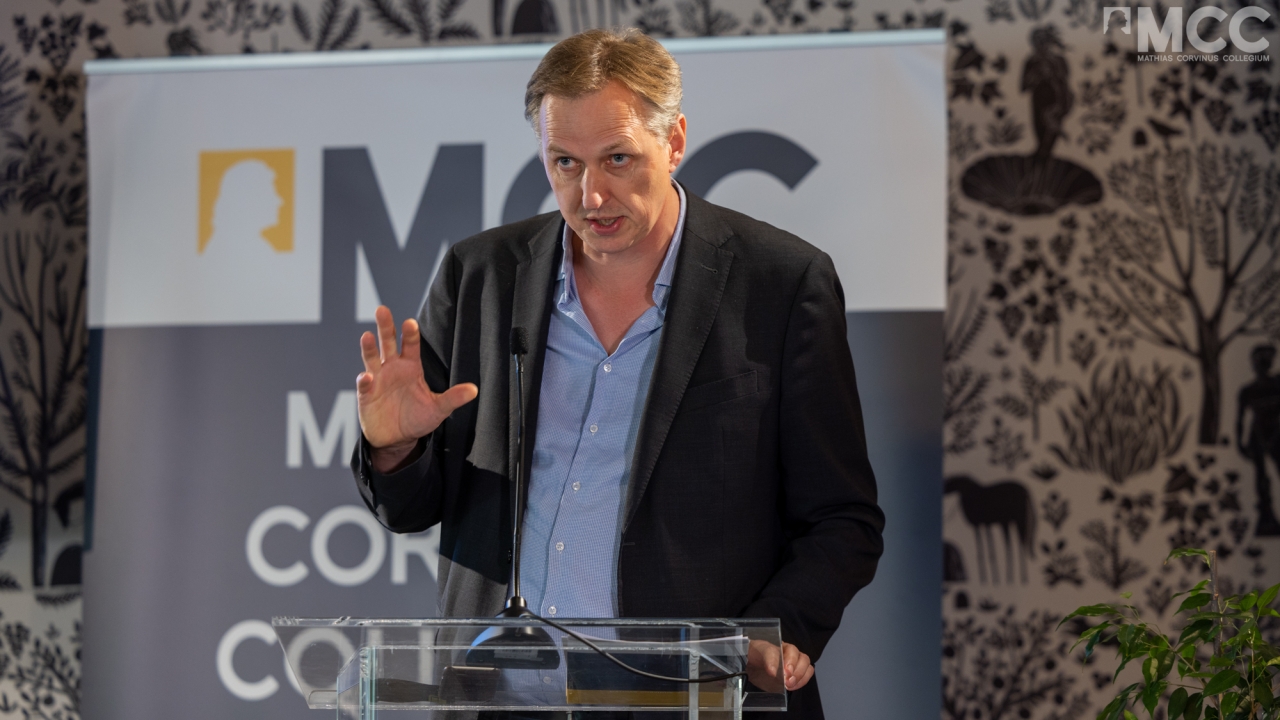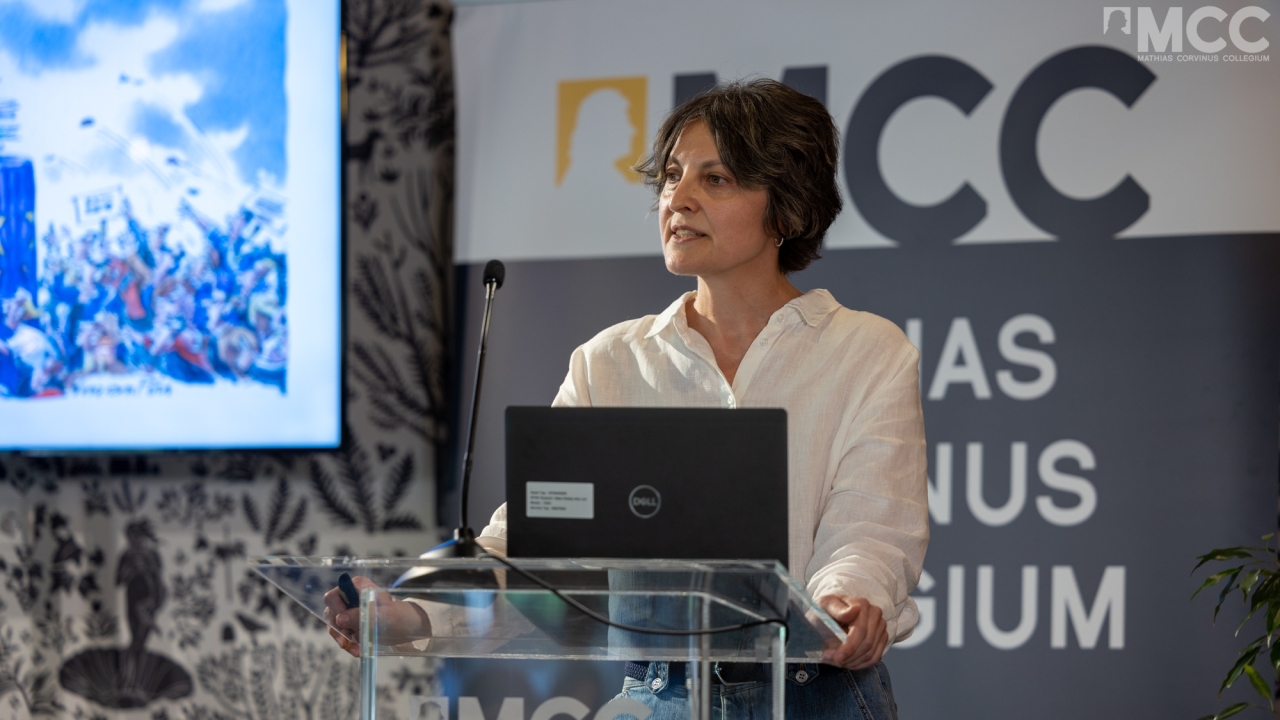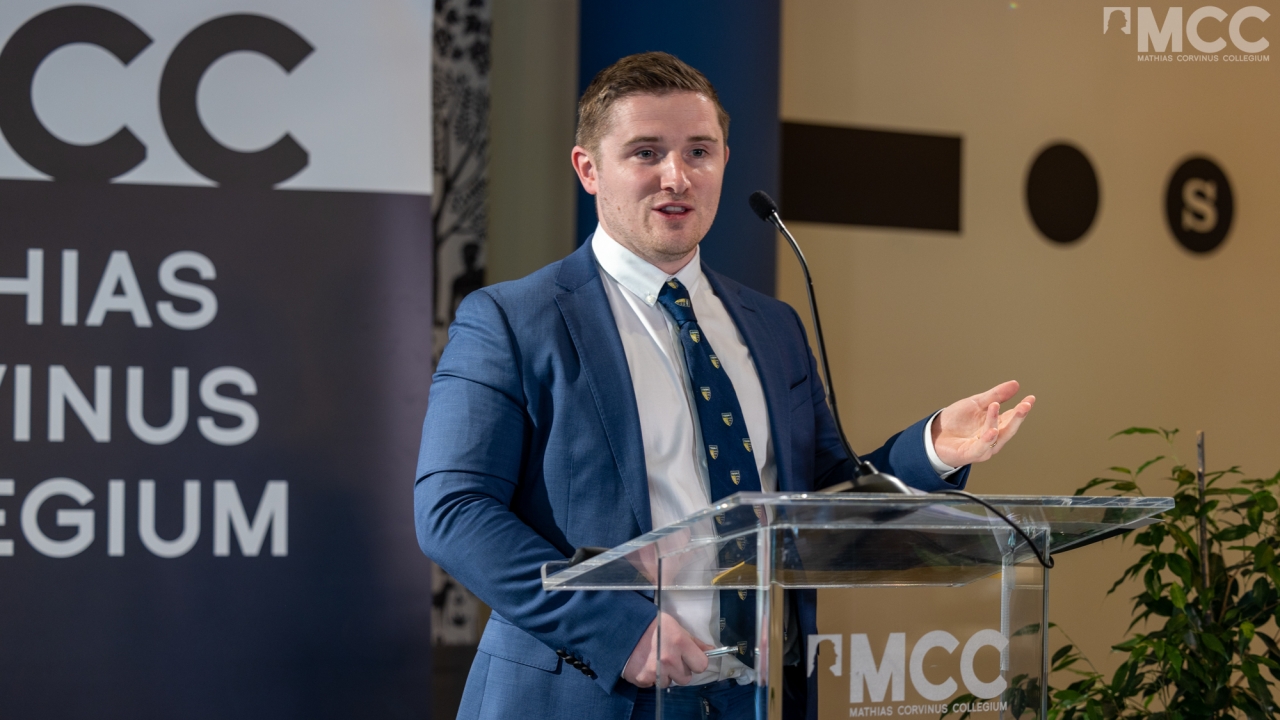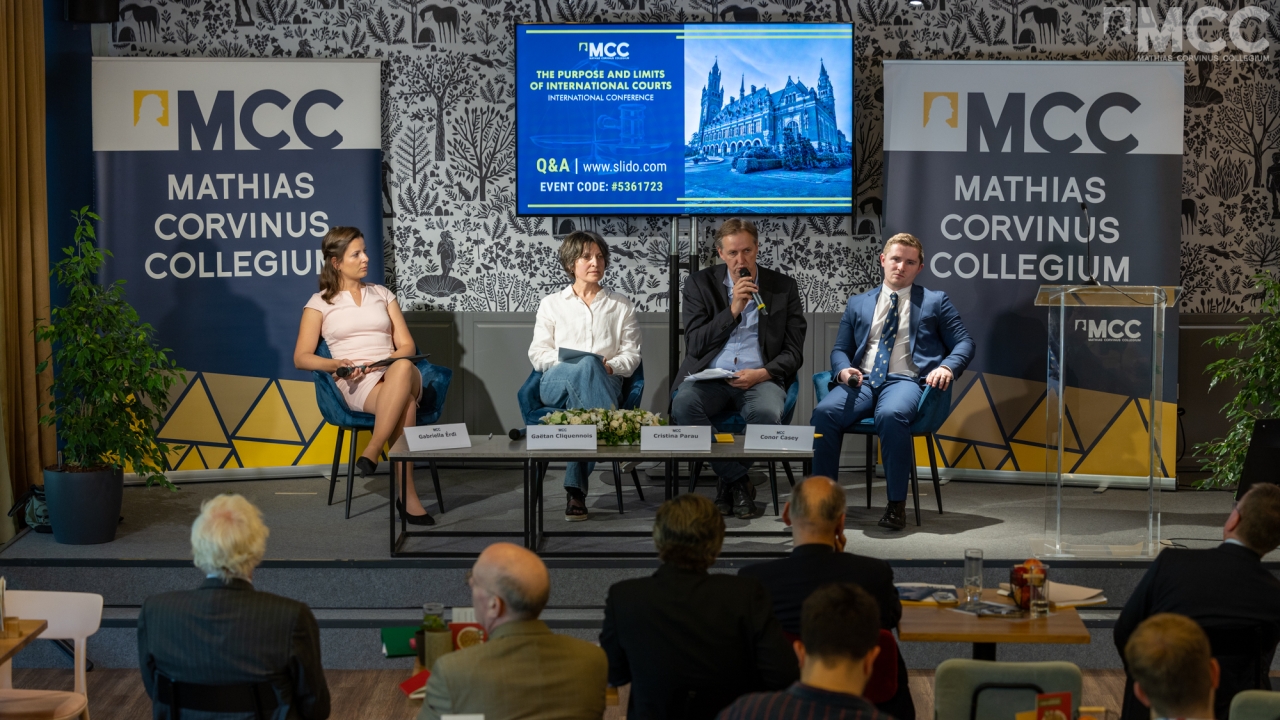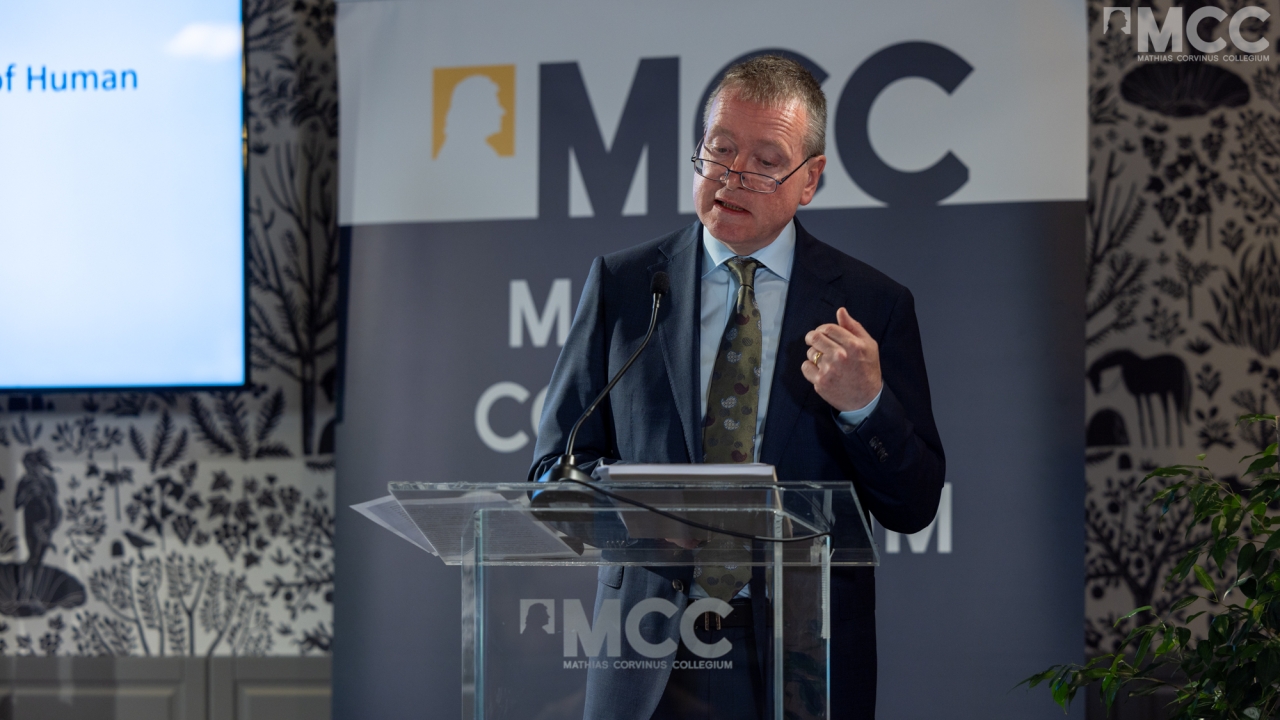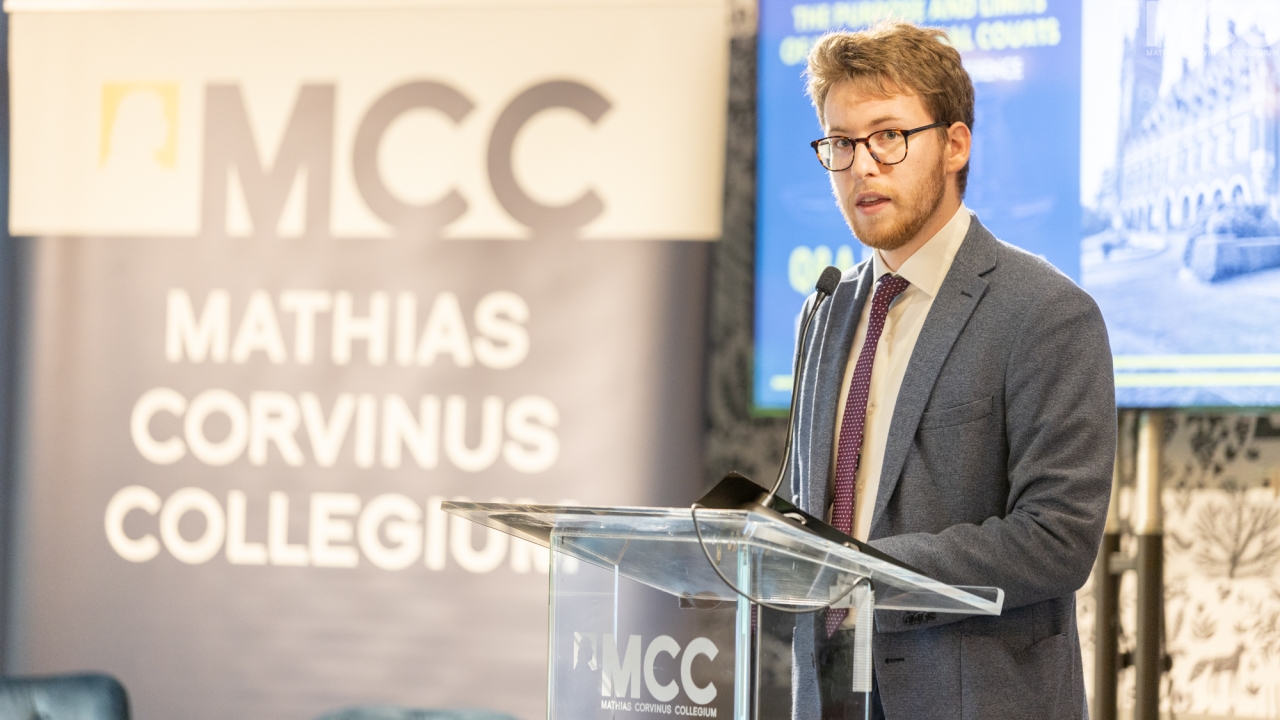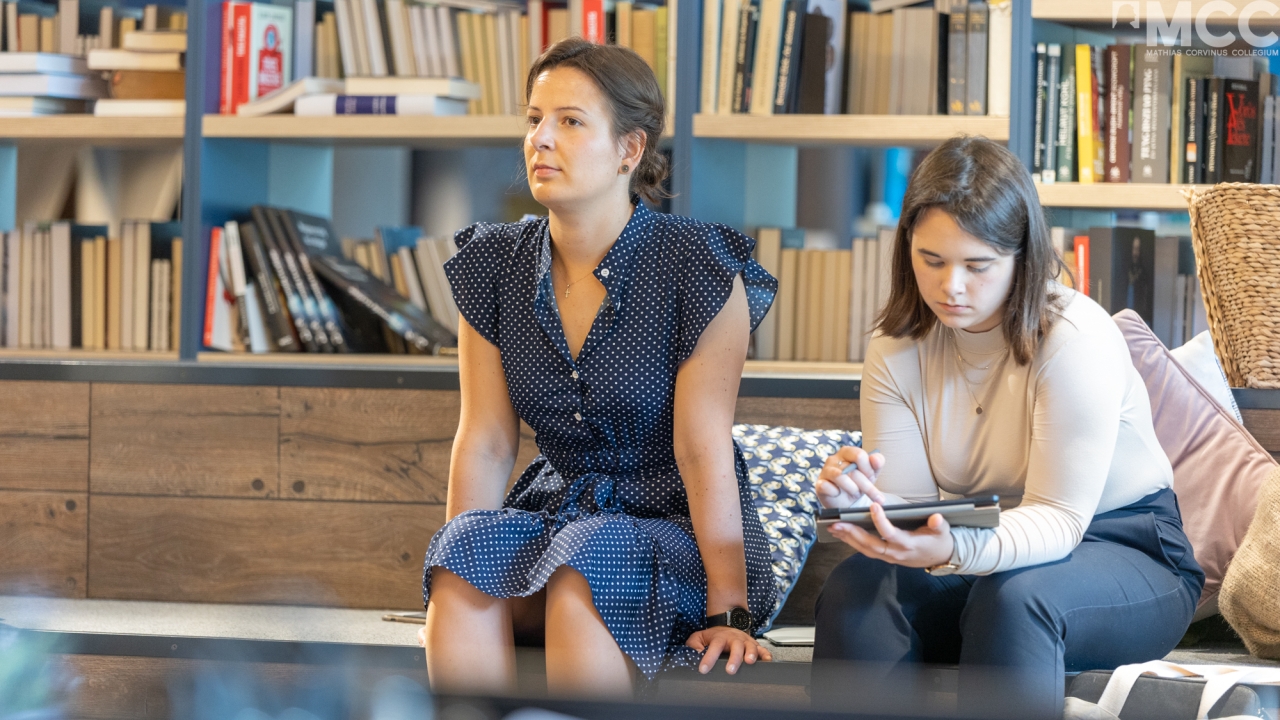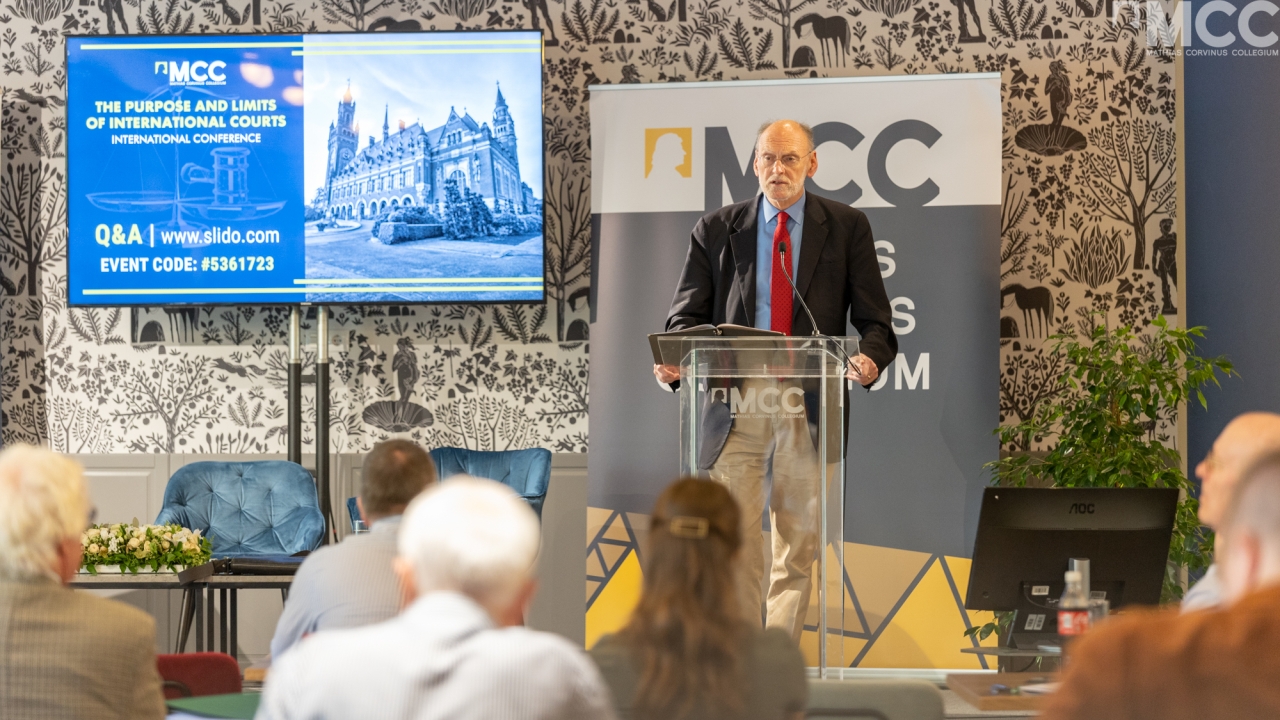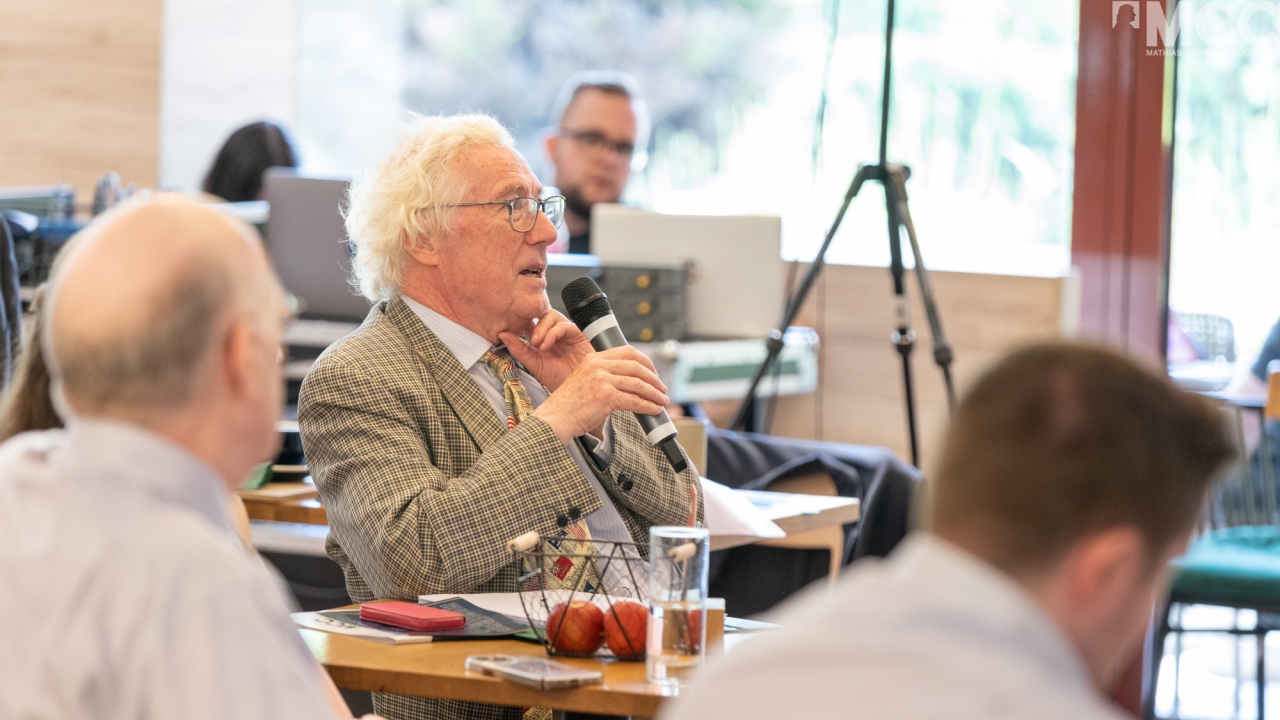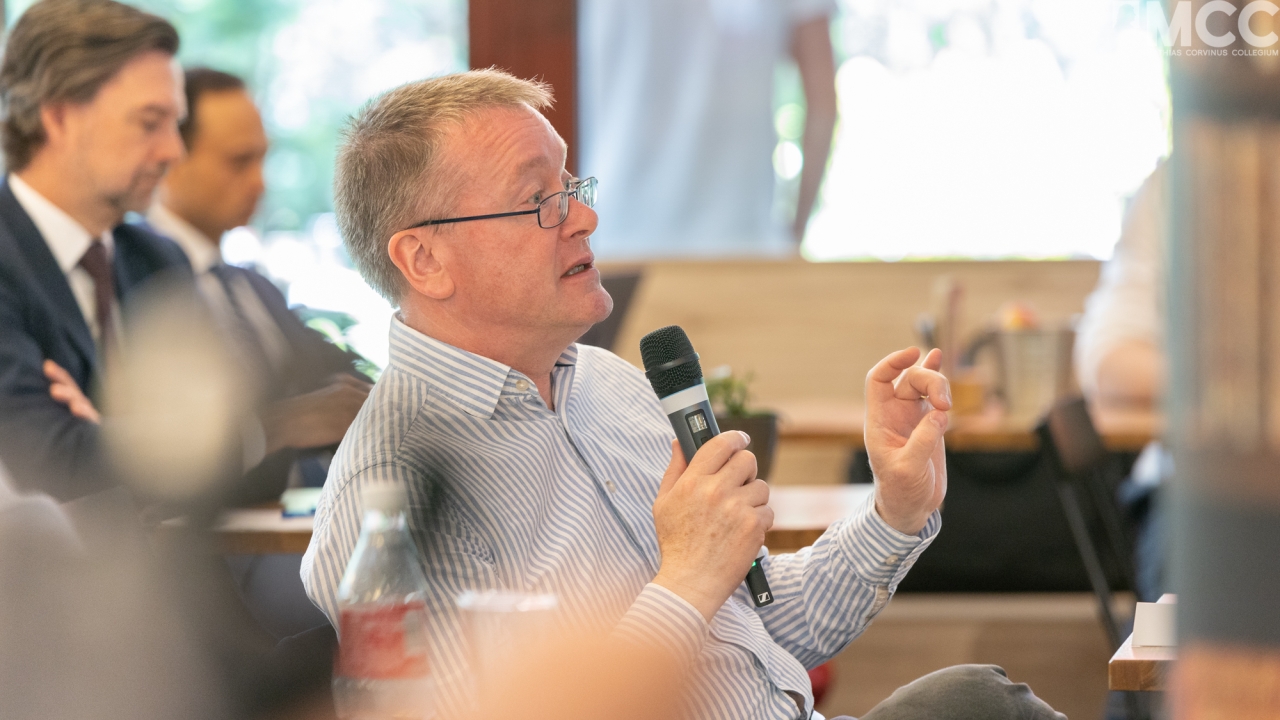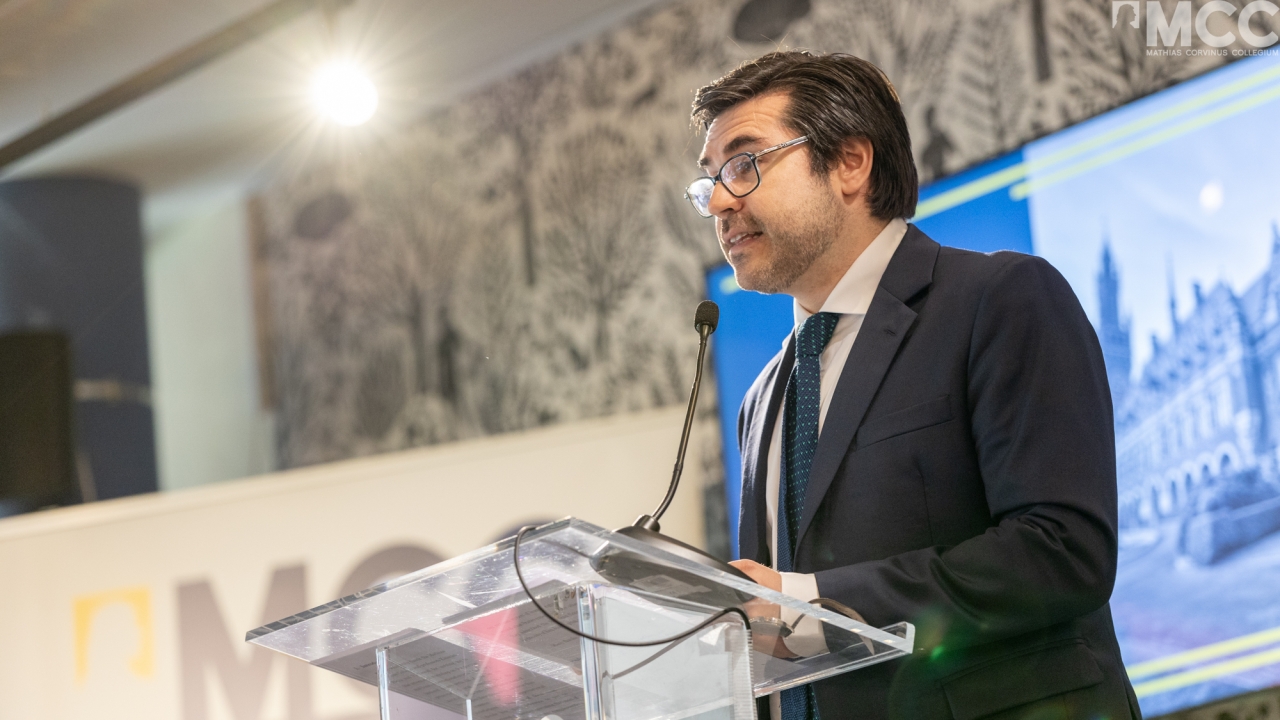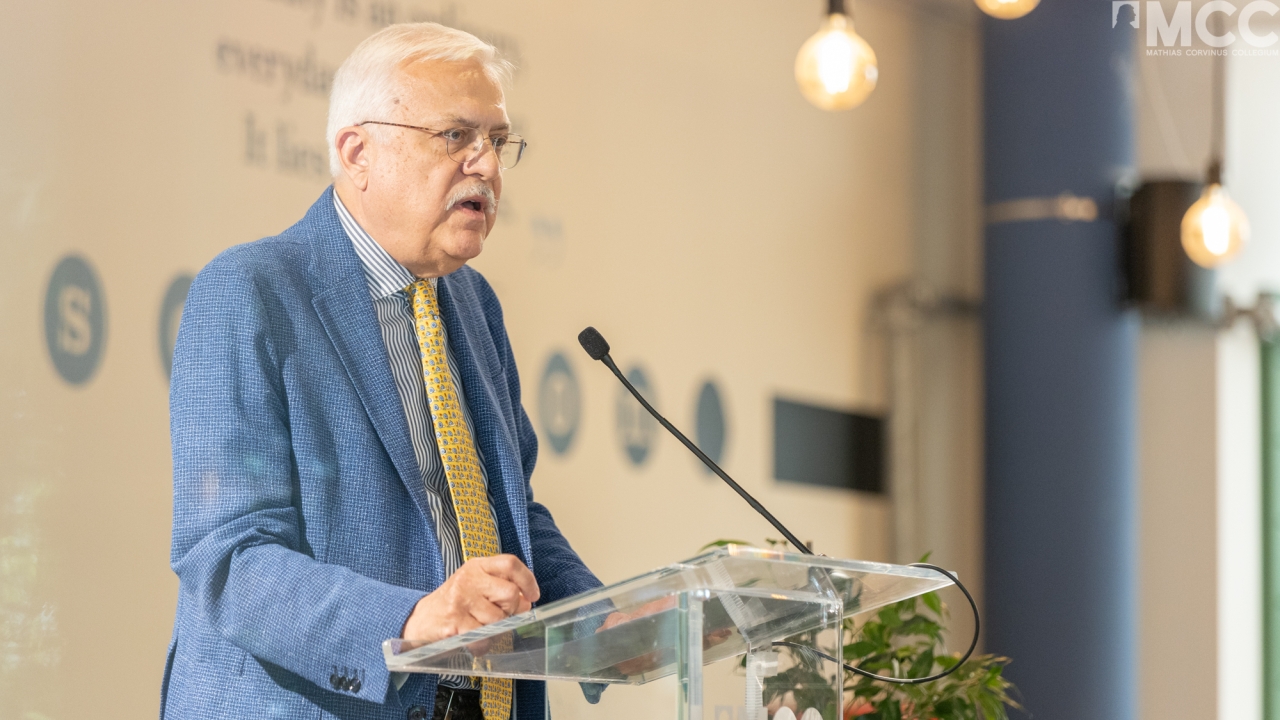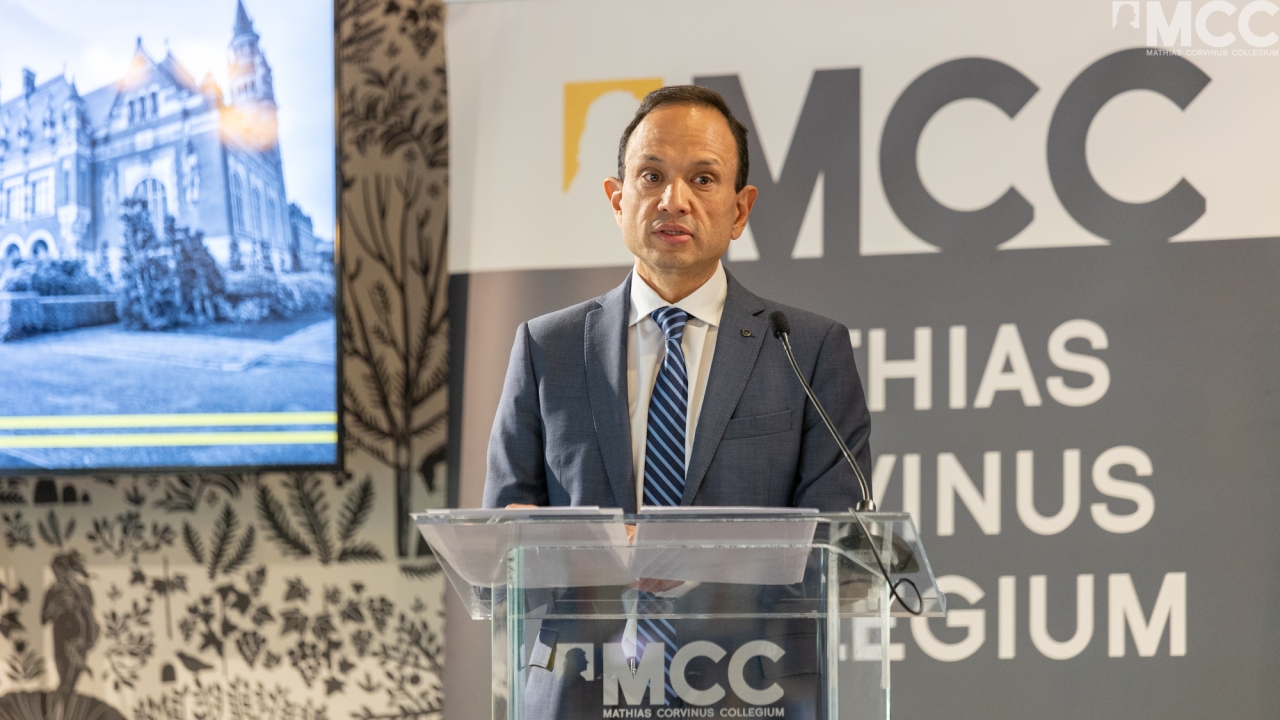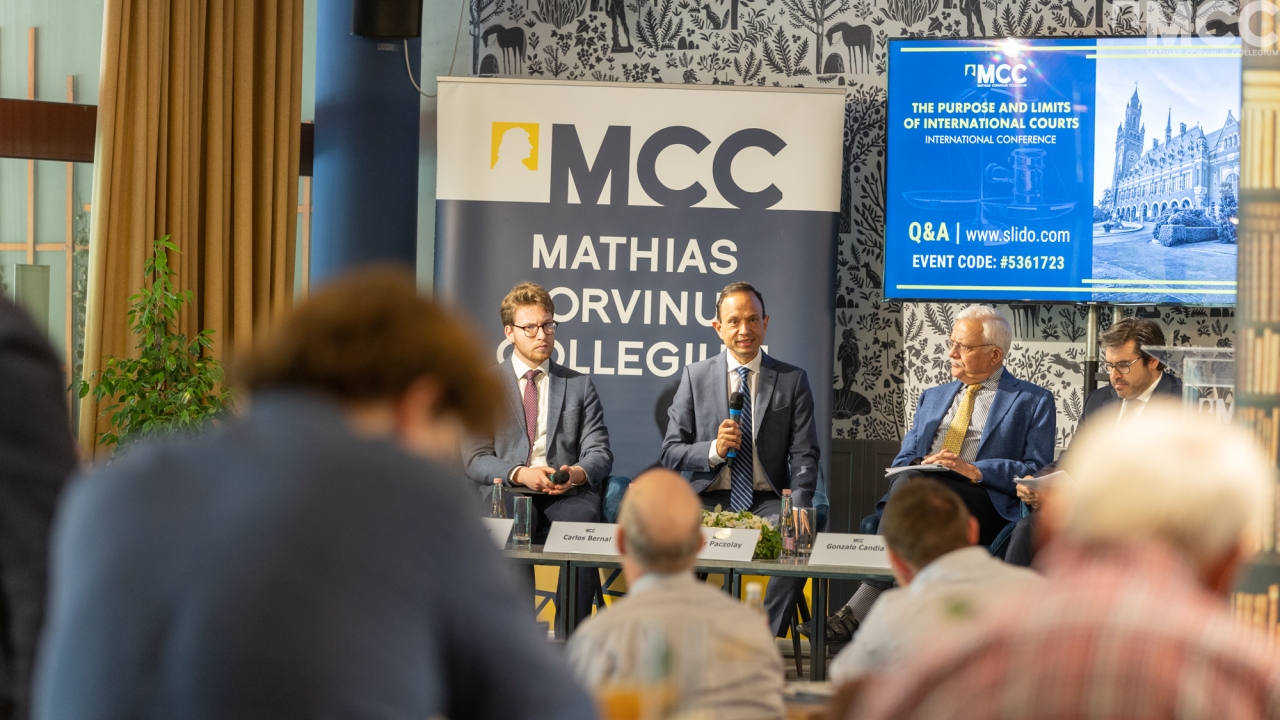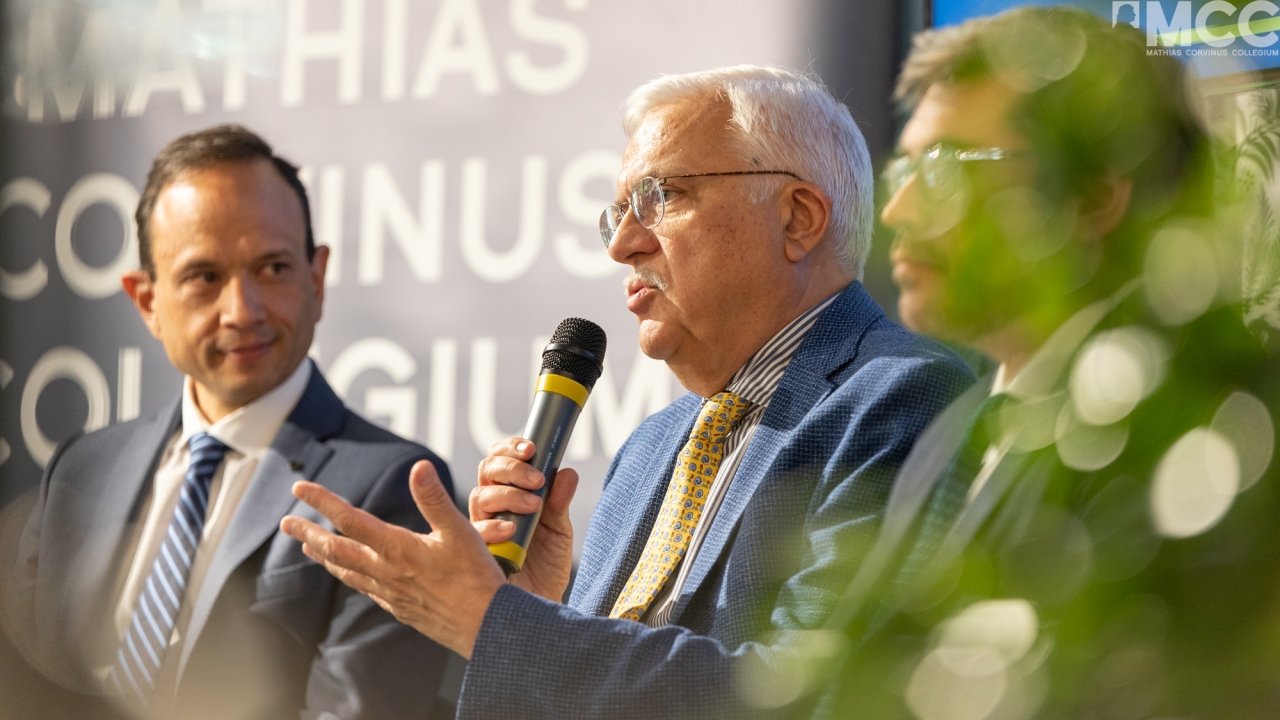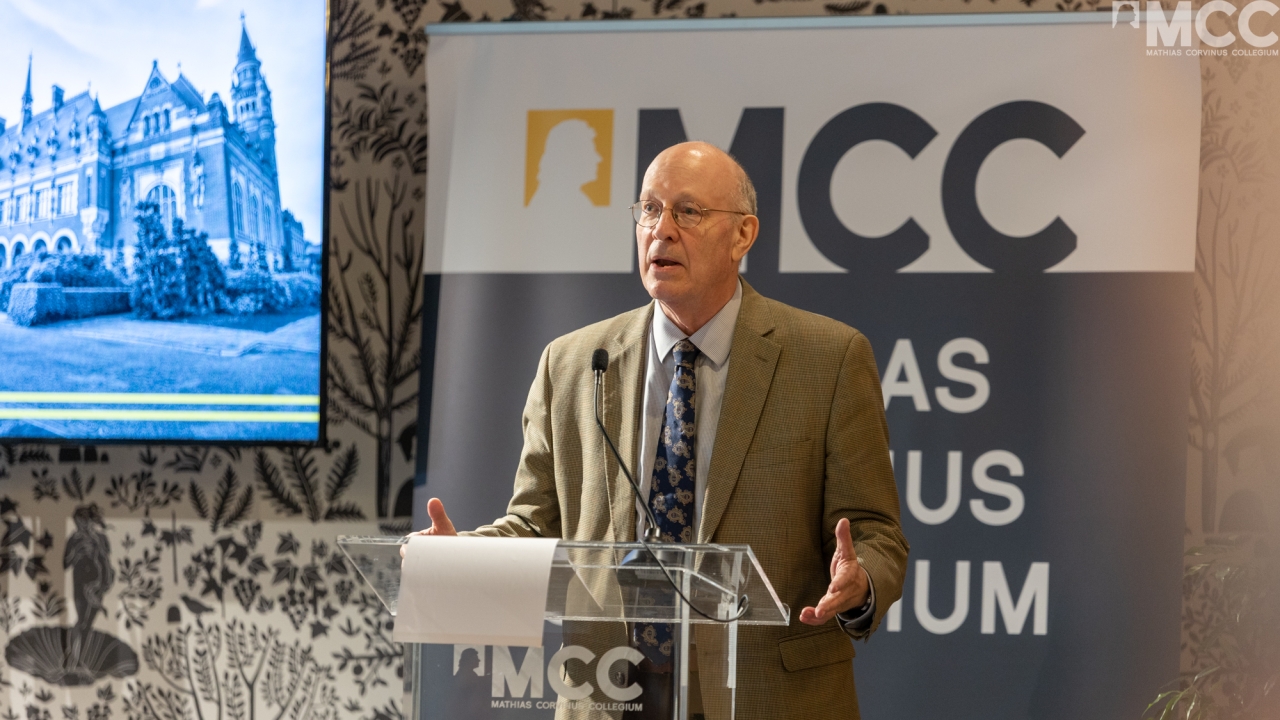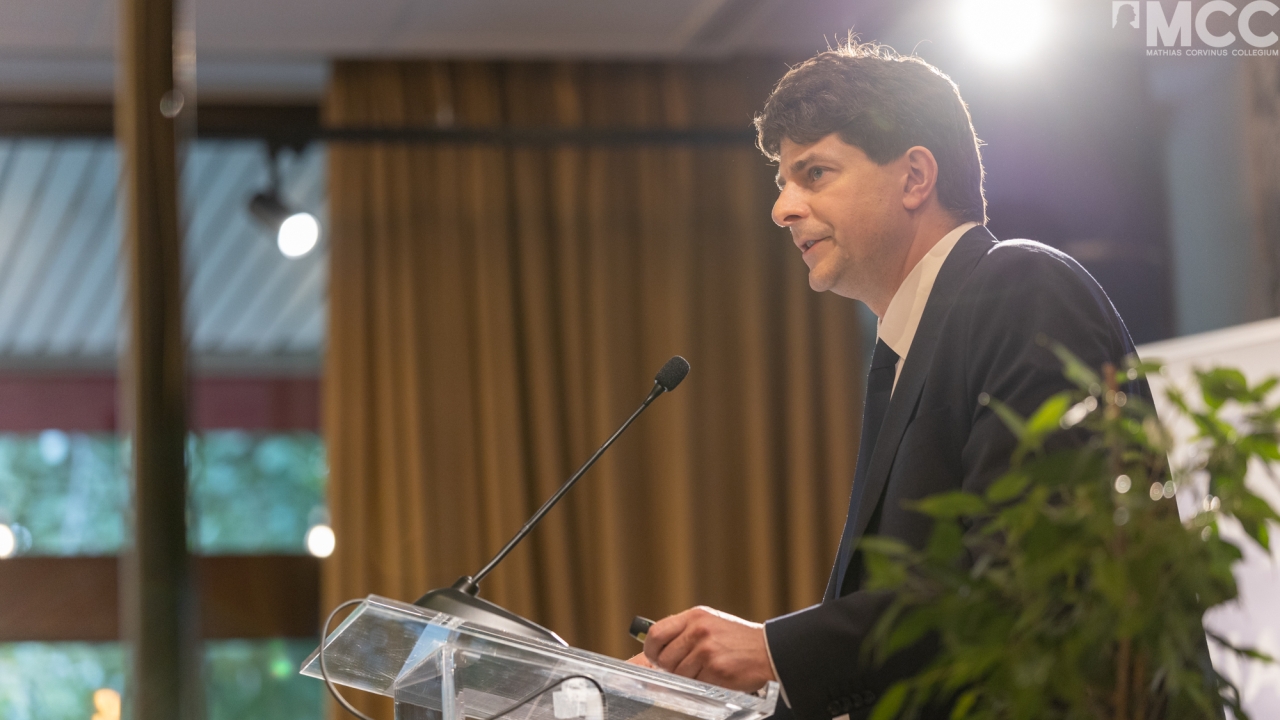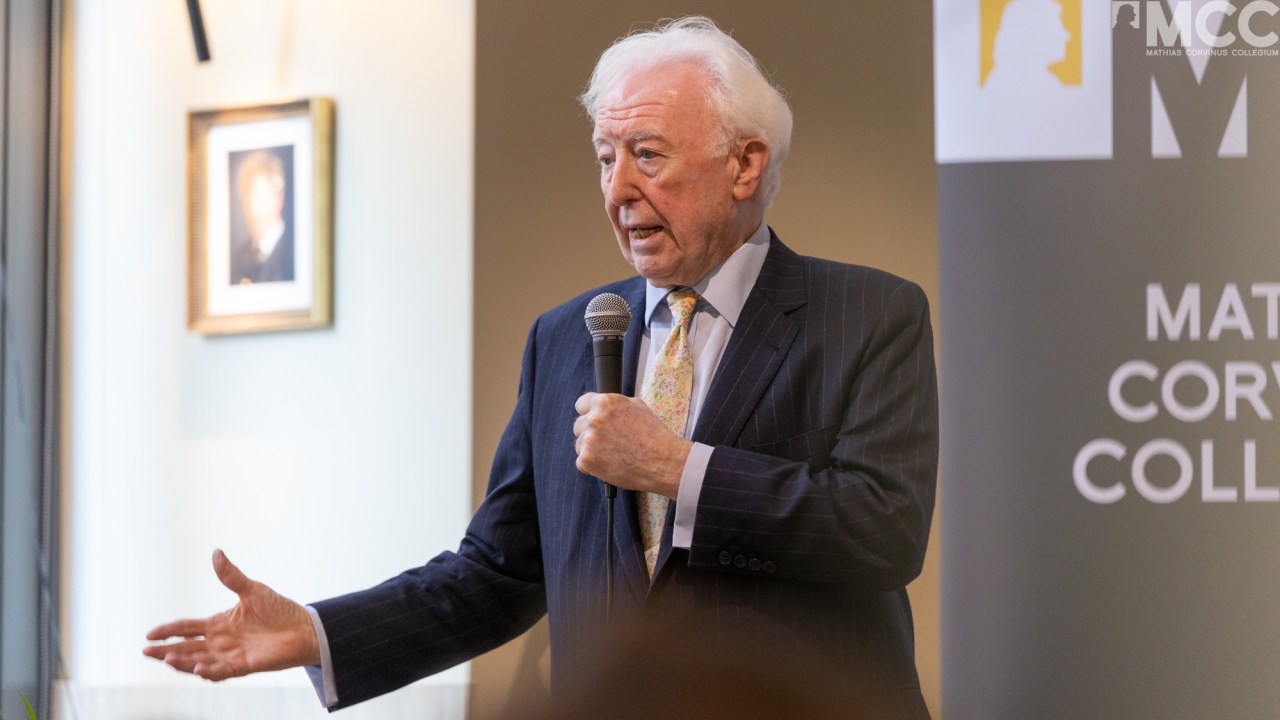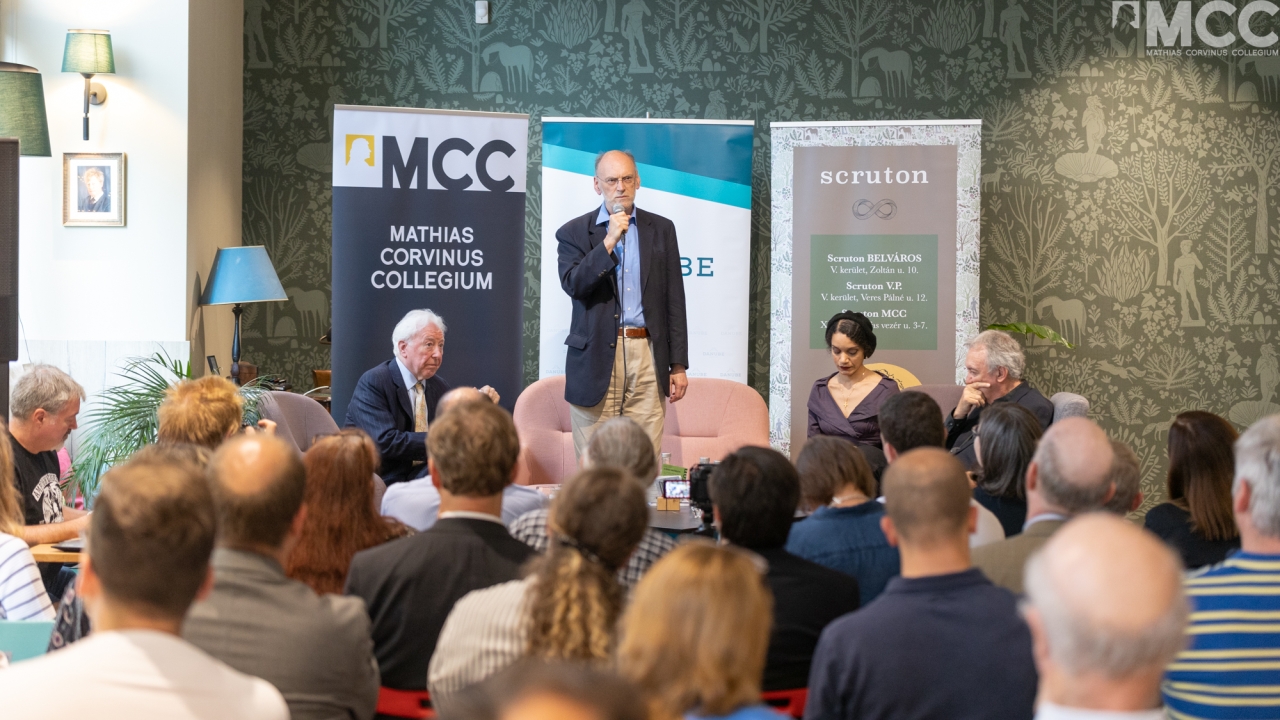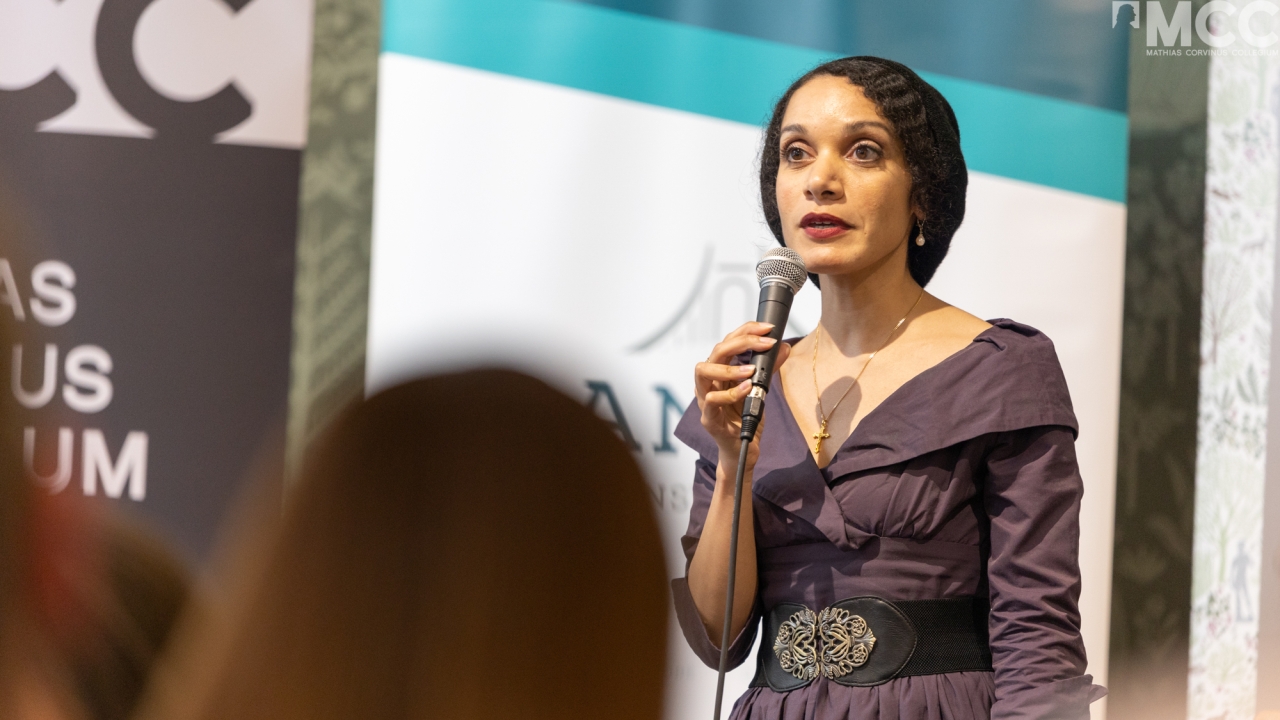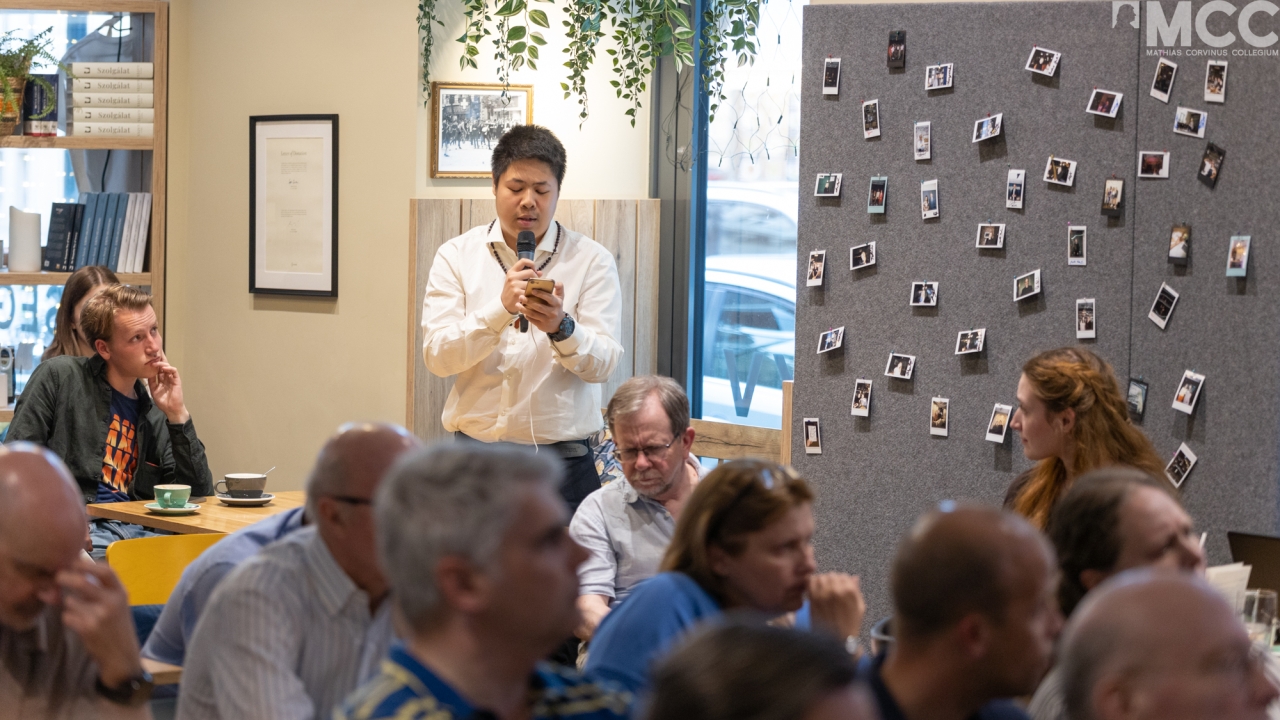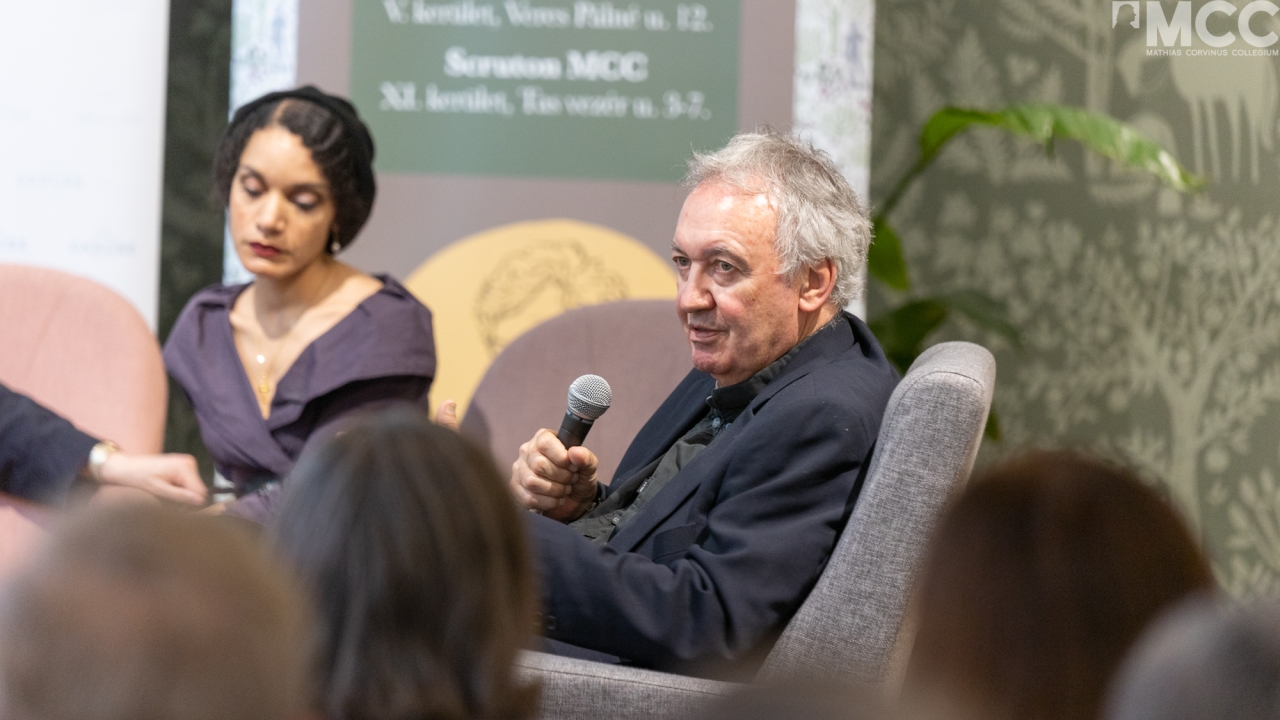Reading time: 3 minutes
In recent years, international courts and tribunals have increasingly ruled on contentious social or political issues that previously were considered under the authority of national governments. The rise of international courts and other international adjudicative bodies after the Second World War had a significant impact on politics at the national level as well. While many argue that this process strengthens the rule of law and leads to greater protection of human rights, others claim that it is detrimental to democracy. These issues are of particular relevance as, in recent years, the Court of Justice of the European Union has ruled against the Hungarian state in a number of cases. This development was one of the many topics discussed at the Mathias Corvinus Collegium (MCC) conference on the role of international courts.
The two-day conference brought together 11 guest speakers from five countries to share their thoughts with the attendees. Through their presentations and panels, the legitimacy and effectiveness of international adjudication was made more understandable to the public, and provided a common platform for exploring the topic in greater depth. The event was opened with a welcome address delivered by Péter Lánczi, Deputy Director General of the MCC. He highlighted that Mathias Corvinus Collegium, with over 7000 students, was now the largest talent institution in the Carpathian Basin, and plays a major role in the promotion of Hungary's participation in international professional competitions, such as the current conference.
The keynote speech was delivered by Lord Sumption, former judge of the UK Supreme Court, who outlined the historical background of international courts and tribunals to contextualize the theme of the conference. Lord Sumption stressed that it is in the interest of nation states to cooperate with the various international adjudicative bodies, without which, for example, economic agreements would not work. Often, international courts bypass nation-states, the former Supreme Court judge said.
Lord Sumption's speech was followed by engaging presentations by Gaëtan Cliquennois, a research fellow at the University of Nantes; Cristina Parau, an Associate Member of the Department of Politics and International Relations at Oxford University; and Conor Casey, an Associate Professor in Public Law at University of Surrey School of Law. The first day of the event closed with a presentation by John Larkin, former Attorney General of Northern Ireland, who spoke about the reform of the European Court of Human Rights.
The second day of the conference began with a keynote speech delivered by Nigel Biggar, Professor Emeritus at the University of Oxford, who spoke about judicial progressivism. "The bias of international courts is only too understandable," said the Oxford professor, referring to the involvement of the UK in the invasion of Iraq in 2003. While Gonzalo Candia, Professor of Law at the Catholic University of Chile, Péter Paczolay, Judge at the European Court of Human Rights, and Carlos Bernal, Professor of Law at the University of Dayton and Commissioner of the Inter-American Commission on Human Rights, addressed the role of regional human rights courts. In the concluding panel, Jeremy Rabkin, Professor of Law at George Mason University, and Lénárd Sándor, Head of the Center for International Law at Mathias Corvinus Collegium, elaborated on the role of arbitration and international lawyers.
For a video record of the event please click here.
Related event: The Purpose and Limits of International Courts.
